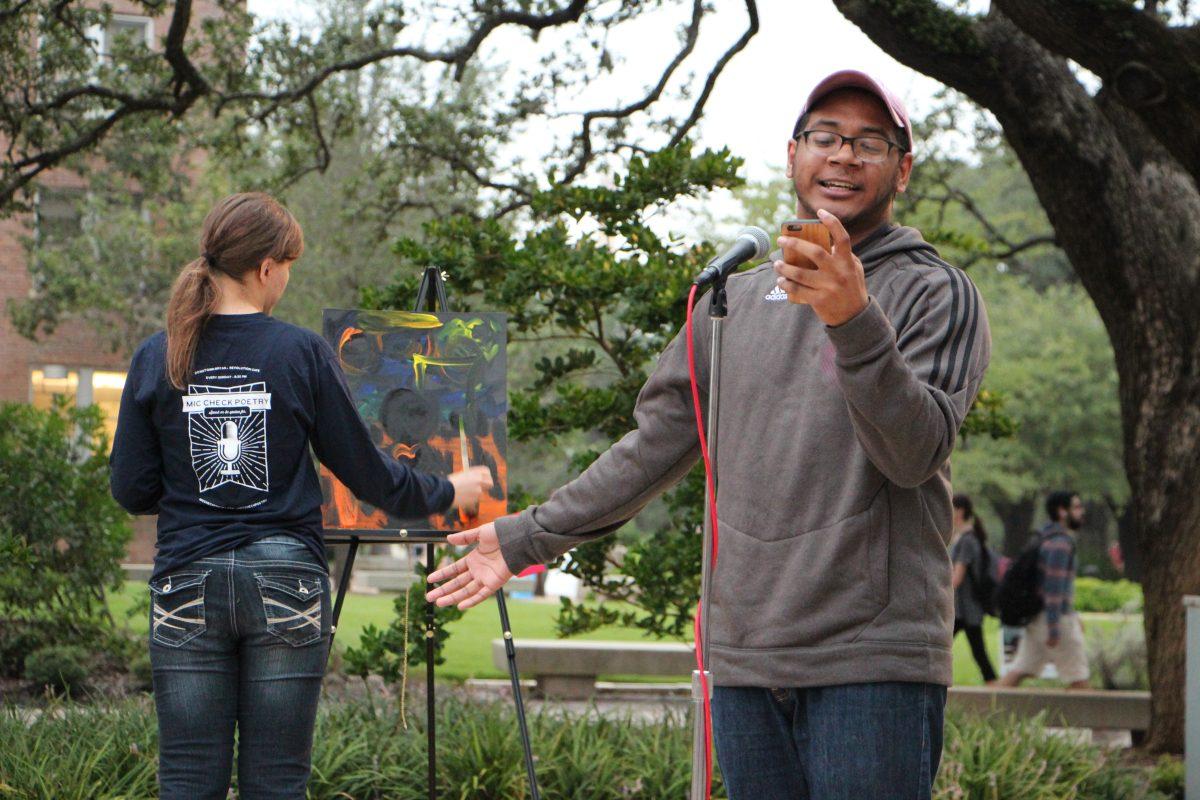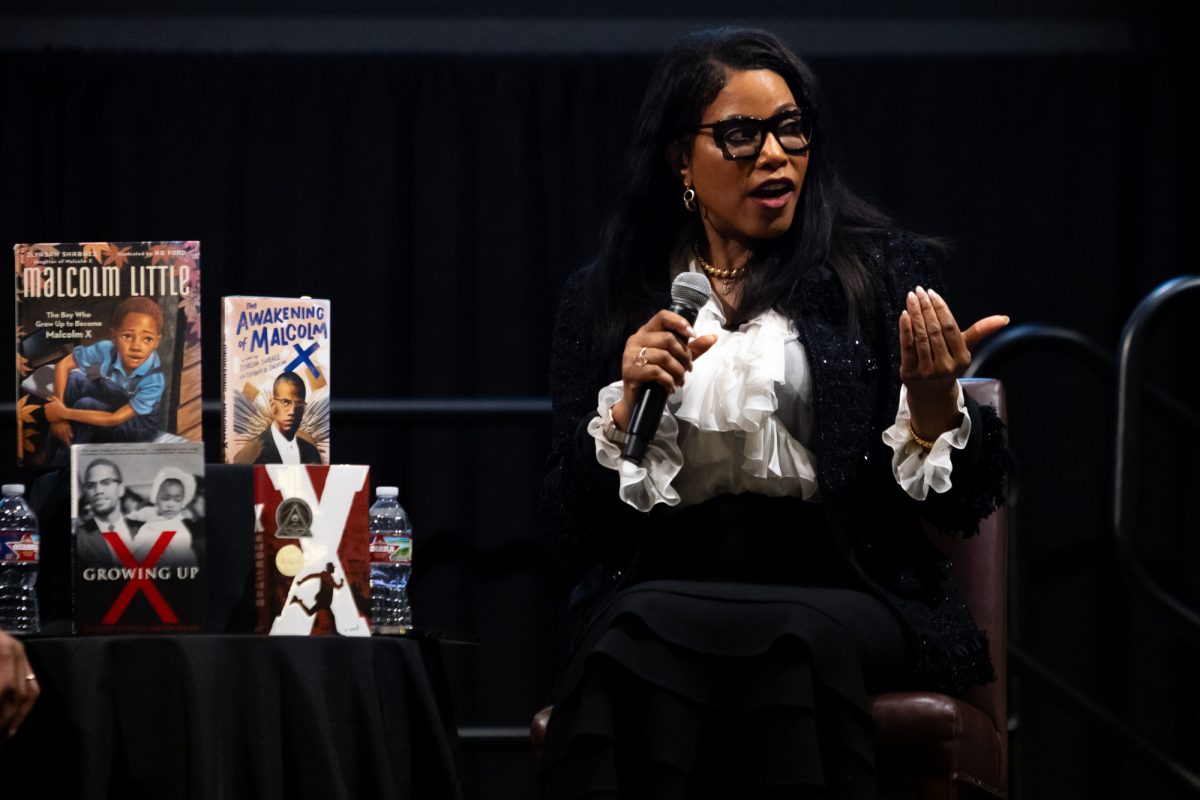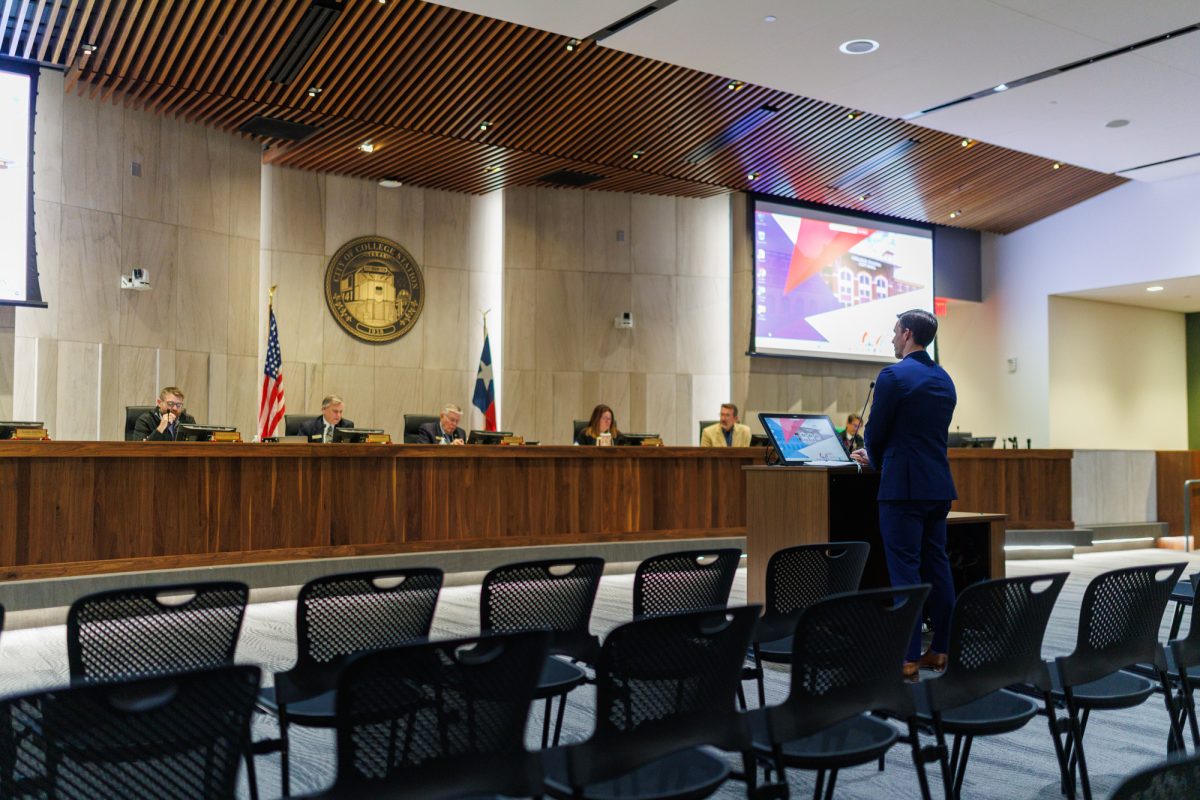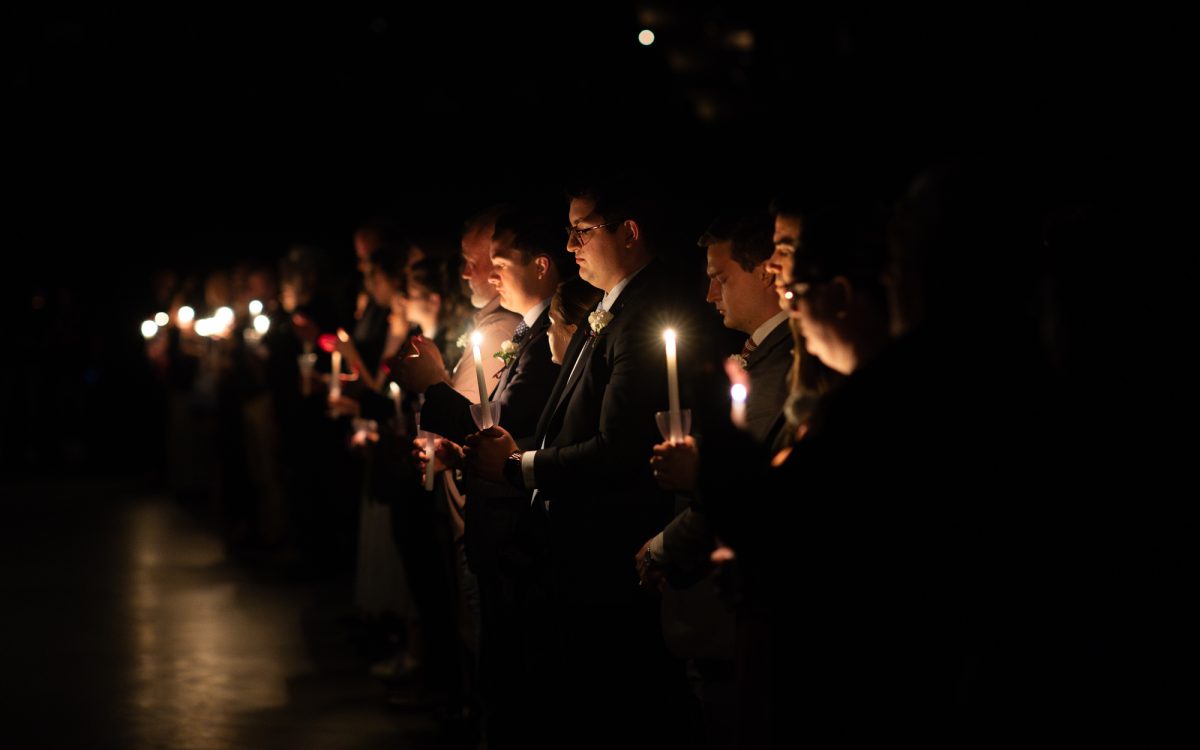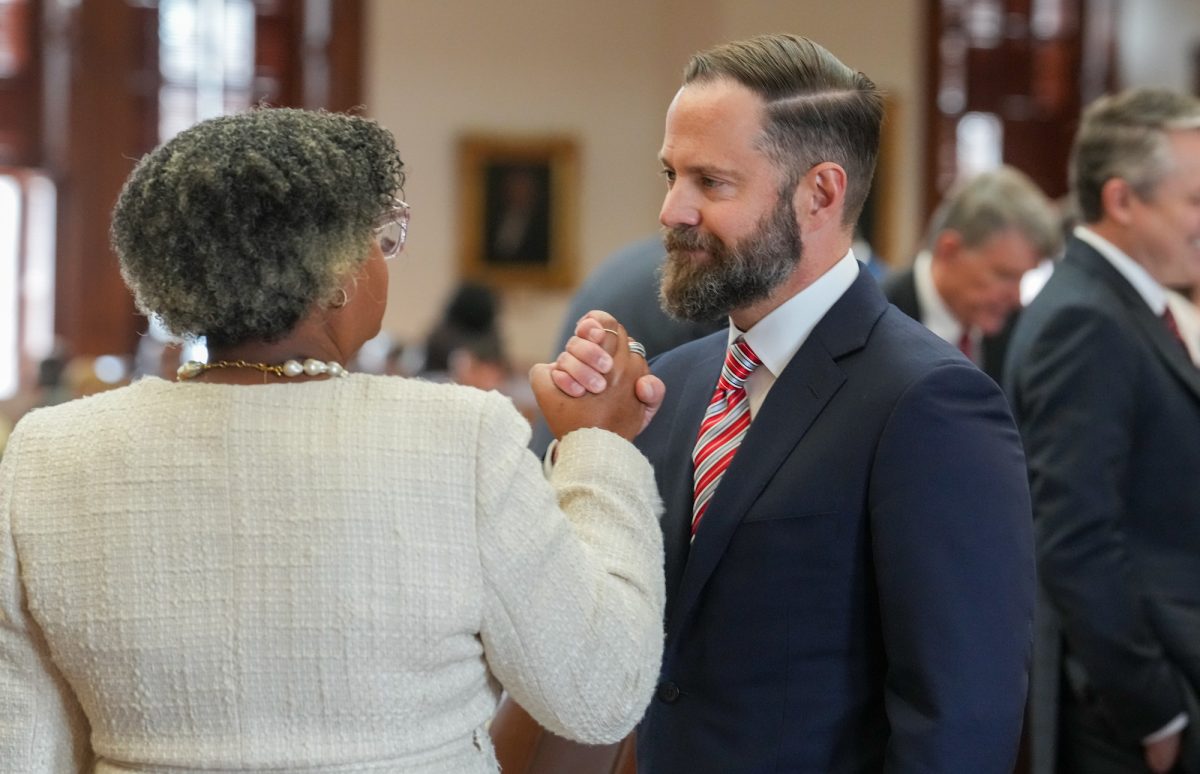Racial conversation is often deemed as a controversial topic — two organizations work together to bring the topic into the spotlight through performances.
MicCheck, a weekly poetry event, along with the Carter G. Woodson Black Awareness Committee (WBAC), put on a slam poetry performance display at Rudder Plaza called “Love Your Melanin” on Monday to openly display their thoughts on the topic of racism.
MicCheck and WBAC work together for this annual event in hopes of opening new dialogues about lifestyle, identity and race.
“Our main goals are to bring art to the community because we believe that art challenges and forces people outside of their comfort zones,” Mic Check president and Texas Grand Slam director, Jordan Cooley said. “That would hopefully accomplish our second goal, which is opening dialogue and constructive conversation and affecting change.”
Cooley said Texas Grand Slam is a recognized program that serves as entertainment for a wide audience.
“The poets here are a good sample of what is coming for Texas Grand Slam,” Cooley said. “We are bringing the most nationally and internationally known poets like Rudy Francisco who have won places in the World Poetry Slam. Even if you don’t like poetry, it’s really a great entertainment opportunity and a way to get to see things you don’t get to see everyday.”
WBAC chose the theme on skin color, while MicCheck provided the poets. The poets are mainly officers, members and active audience members in order to workout a good lineup.
“Well, my brother started MicCheck in the way it is in now,” said Aryan Safi, MicCheck member and performer. “I grew up watching him doing a bunch of poetry and I grew up around his friends who are all also amazing poets.”
Safi’s poem described his take on the case of Ahmed Mohamed, who was arrested when his home-made clock was suspected to have been a bomb at his school.
“It was the only complete relation I felt I had that was good enough for me to feel comfortable reading and that matched the theme of the night,” Safi said. “This was especially sensitive because when I read some of the articles I read and watched some of the news I watched, I really identified with it. He’s just a kid who is trying to live, and people are trying to project this image onto him. He brought something that was totally benign, and I just remember what it was like growing up here, in College Station.”




